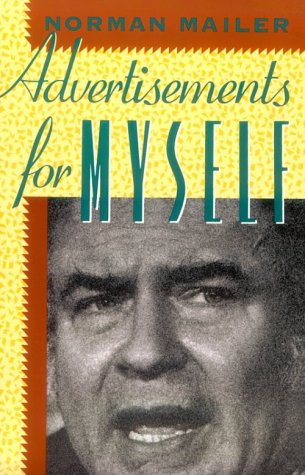
An example of a great way not to get into college.
Hello, dear readers! Today I’m going to write about a crucial element of the personal statement, that most thorny of writing projects-cum-vehicles for self-aggrandizement: managing your tone. If “managing your tone” doesn’t make much sense to you, I can put this another way: how to talk about your personal achievements without sounding like a self-inflated gasbag.Below, I’ll discuss two steps (of many – future blog posts will explore others!) to ensure that your personal statement conveys an honest and holistic sense of your personality and successes, while maintaining a crucial modicum of humility and perspective. I will add one caveat: if you are the offspring of a Trump or a Kanye, or wish that you were, just stop reading now – this advice will not be able to penetrate to the molten core of your egotism. But if, as I suspect, you are like the rest of us mortals, you may have found yourself pondering how to do that most difficult task of “telling us a little bit about yourself” without sounding awkward, biased, or ridiculous—well, this post’s for you.
1. Talking about yourself is not the same as mindlessly marketing yourself.
The former demands a considerable dose of self-awareness, while the latter is often most successful when self-awareness approaches zero (cf. the entire cast of Jersey Shore, or the last five months of Miley Cyrus’s career). Self-awareness is a necessary ingredient in the college application stew for a number of reasons. Admissions counselors are charged with finding curious, analytical minds from all corners of the earth, but they need to admit more than mere brainiacs. Much more important to the intellectual and social fabric of the incoming class is a sense of identity and place, and this will come from admitting students who have the critical tools not only to question ideas and information, but also to question themselves. Students who are able to step back from their lives and actually reflect on their experiences, instead of simply recount them, always command the full attention of application readers, because these are the students whom universities are after, the students who can read objects and subjects in context, who can judge events by more than one standard, and who can demonstrate a critical investment in self-examination, that nifty action commanded by the Oracle at Delphi that’s been weaving its way through Western civilization ever since.
To speak frankly, universities aren’t interested in kids who excel consistently without thinking about what that “excellence” means, who it serves, and why it is worth one's time and energy. An applicant who is able only to list, or lightly discuss his/her achievements without rendering the context and contemplation so necessary for any good story will simply come across as a robotic achiever, assuredly driven, but lacking depth and purpose. Or worse, as someone who doesn’t stop to think about who they are and what they are doing in the world. Neither of these people will be good fits in the most demanding college classrooms, and so neither of these people will find themselves admitted by the most discerning of college counselors. Self-awareness must show through in the admissions narrative, and that starts with spending some time contextualizing whatever it is you choose to write about and poking at it from all sides. Remember that your narrative should be depth and not surface, translucence and not transparence.

Great title; terrible college applicant.
2. You don’t need to sell the college to itself; you need to sell yourself to the college. And to do that, you need to know what the college wants.
A lot of students misunderstand the role of self-awareness in the personal statement, and this makes perfect sense, given the complexities of a well-crafted college admissions essay. Self-awareness is much more than the mere consciousness of the self—what phenomenologists call originary perception and what celebrities call “being big on Twitter”—rather, self-awareness is a bundle of reflexive properties that altogether help to frame experience in context.
A self-aware college applicant can talk about her experiences, thoughts, aspirations, and desires while also showing different admissions officers how perfect those things make her for their specific college.
In other words, she's a kid who manages to talk about her school of choice by and through talking about herself, and vice versa.
Colleges need to see that students are thinking carefully and strategically about what they will particularly contribute to their specific college environment, and this means that the strongest applicants talk about themselves in direct relation to the colleges to which they are applying. This actually seems pretty easy, except that a lot can go wrong. For starters, students can say too little while trying to say a lot. As in point number one above, what counts when discussing character, achievements, and goals is depth and not breadth. Beyond speaking deeply, you must also link your self-descriptions to the college’s own strengths and sensibilities, providing a clear connection between what you have to give and what the college will receive.
Imagine a college essay with the following sentences: “I love sports and I’m very athletic, and I like competition. Because XX College has a lot of competitive sports teams and sporty people, I will be a perfect fit.” This is a very watered-down, but generally functional example of how this structure ought to work. Now, there is definitely room for improvement. The essay should hopefully have answered some bigger questions: Why does the student like sports? What does it mean to be athletic? Is it a family trait, something he/she figured out on their own, got inspired by watching the Olympics from, had a great/horrible/life-changing/instructive/fascinating/frustrating experience with a coach or a teacher once? Why is competition important? And so on. Nevertheless, all the necessary parts are in place: we’ve got a modicum of self-examination, a pinch of references to the college’s own character, and a bold causal linkage connecting one to the other.
While writing these kinds of students-in-context sentences, it is important to make sure that what’s really being sold is you, and not just the college you like. It is essential to do more than simply tell the admissions office what it already knows. Let’s return to the sentence above. Now, the admissions officers know how strong the athletics program at XX College is—they spend several months a year marketing it to high schoolers all across the country. They have little speeches prepared for their tour groups and information sessions and college nights and parents weekends. Really, it probably haunts their dreams. In fact, the last thing on earth that they want to hear any more about is how good XX College’s athletics program is. So don’t remind them and then sign off. What the writer of the essay should do instead is use the opportunity to more openly frame a narrative that conveys how athleticism is an important element of his character, and thus how attending a college where athleticism is emphasized will be a fulfilling and mutually beneficial outcome. And thus, you are using your self-awareness as a pivot into a discussion, or rather reflection, about campus “fitness” – pun intended. But this is not the same thing as simply selling the school, and the applicant, as interlocking products meant to be purchased together. There are so many other things to explore here, but for now, I will sum up the above with a simple dictum: You are not a brand, although your college of choice might want to be; yet, you are much more than a consumer, and a college is much more than a product.
In future posts, I will continue this discussion about managing tone and striking a balance between too much and too little self-awareness. The Trumps of the world need not apply, but for the rest of you, good luck, and as always, enjoy!


Comments